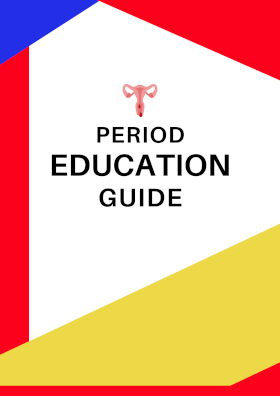Period Education Guide
Periods are a natural part of growing up for many people. Periods usually begin a few years after puberty has started. When a person is going through changes during puberty, like starting their period, it is normal for them to have questions. However, periods, puberty, or other sexual health education topics can be subjects that some people avoid talking about. Additionally, people with disabilities have been historically left out of these conversations. Everyone has the right to learn about and make decisions about their bodies, regardless of whether they experience disability or not. Periods and puberty-related changes do not have to be scary or mysterious. There are strategies and tools that can be used to improve the experiences of periods for young people who menstruate and their caregivers.
About the guide:
This guide was developed to support young people in learning about and managing their periods. The guide includes information and strategies that can be used by young people or support providers, like caregivers, educators, or healthcare providers.
Full report:
Individual sections:
About this project:
This guide was developed by Noelle Vidak, an occupational therapy student at Pacific University, in partial completion of her doctoral capstone experience and project. It was co-authored by Dr. Alisa Jordan Sheth, capstone faculty advisor and assistant professor at the School of Occupational Therapy at Pacific University, and Lindsay Sauvé, capstone site mentor and Program and Evaluation Manager for the University Center for Excellence in Developmental Disabilities (UCEDD) at Oregon Health and Science University (OHSU).
